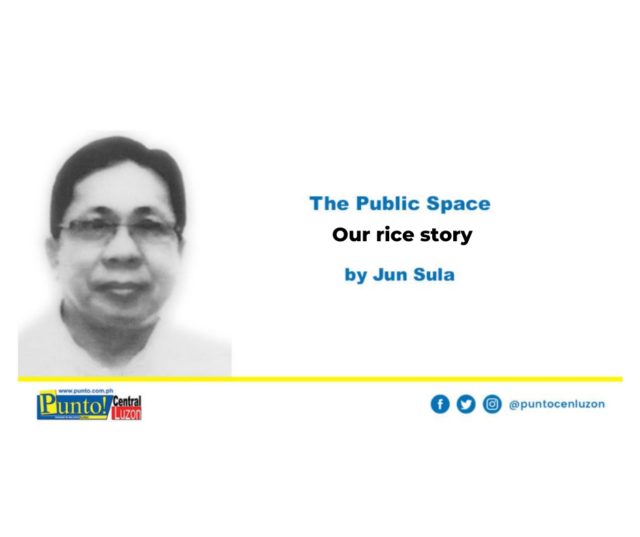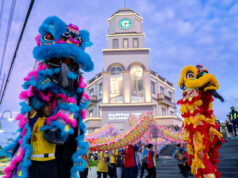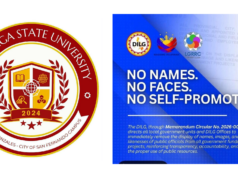First thing first. In the beginning, it has always been the farmers first before the traders. That’s the way it goes, or should.
Palay is milled first before it can be cooked as rice. The late heroic, bigger –than-life, real or reel, action star FPJ drilled that in to a corrupt judge in a box-office movie. FPJ once ran for president and lost– robbed of victory, according to his legion of religious followers, including his famous actress-wife who screamed indignantly on TV that a former president lied not only once but twice.
The story has been flipped, somehow. History or histrionics, theatre and truth are played out interchangeably in public life where trust demands honesty.
It’s much about politics as it about rice in this country– or sugar, onion, pepper ad infinitum. Indeed, it applies to a lot with a cheating issue alive and kicking in social media in the last presidential elections , where the predictable winner ran way with the votes and the predictable loser decided to cool it in the land of the free and home of the brave. In the meantime, our saga, principally, about the price of rice has been an endless crusade.
As it happened recently, my brother-in-law, a rice farmer, came home with a long face. He looked forward to harvesting his palay crop on a two-hectare farm in a month’s time. But the price has gone down to P18 per kilo, from as high as P22. President Bongbong’s decision on the price cap of rice in the market has something to do with it. He doesn’t understand it, like he thinks the law of supply and demand is Greek. He shares the same problem many legislators, even Cabinet officials, face.
He fears that the price of palay will likely to drop further. He voted for Marcos when he promised,so he heard, to bring down the price of rice to P20 per kilo but mentioned nothing about the price palay. The news, which is not exactly new as Malcolm Magguerridge once said, has bared that the President has signed a five-year rice agreement with Vietnam.It doesn’t bode well for palay farmers like himself.
When he was younger he heard about the Philippines as the center of rice research in Asia where students from neighboring countries come here to know better about rice production. Vietnam might be one of them. Look where it is now, even after a long war with the United States that wrecked havoc on its people and their farms. Apart from winning the war, it has become rice sufficient. It’s even standing up against an old ally and imposing hegemon who’s claiming it owns the South China Sea, or most it.
That country has come a long way, though it’s not surprising given its performance against a former colonizer, France. The Philippines in the meantime will depend on Vietnam for its rice need in the next five years, the same amount of time left to the presidential term of President Bongbong. Farmers, like my brother-in-law, can grin or bear it in the next half a decade. Name that tune.
The price cap the President imposed is only temporary according to his economics people because the rising trend is creating pressure, not only in the market but on the government. Rice is a staple and, thus, is also considered a political commodity . Hence, dealing immediately with that pressure was deemed necessary to avert something worse, both in social and political terms. Queen Marie Antoienette of France is said to have triggered a revolution because she had supposedly told her people to eat cake when bread became scarce. Filipinos are now told to consider eating camote and more vegetable in lieu of rice.
The price cap is not as solomonic as it sounds, though it rhymes with camote as an idea.
Some economists believe that the price cap addresses only the symptom of the problem, not the problem itself , which is shortage. It’s called price control, and according to the Noble Prize winning American economist Milton Friedman, price control is a bad policy. The cure is worse than the disease. It interferes with the law of supply and demand, and worsens, not solves, the problem on shortage.
One Cabinet undersecretary of the Marcos administration has resigned over it. Apparently, her expertise on free market was not welcomed. The resigned official explained on social media that it is better to resume teaching the law of supply and demand to her economic students at a state university. It hard to teach old dogs and people alike new trick.
President Bongbong has assured that the price cap will be lifted when the price of rice goes down as soon as the harvest season begins, which is sometime in October or November. Farmers are not too optimistic. There are producers and there are retailers, but there are also hoarders, even smugglers, that complicate the situation. It seems they are invisible,if not invincible, as indicated by some government officials.
The President is also the head of the agriculture portfolio,a position he has held from day one, and of which he has been asked by many to give it up to somebody who has both the competence and time to do a better job. Agriculture was the least productive sector during his predecessor’s time, and assuming leadership in that sector hasn’t improved its performance to a desirable level.
My brother-in-law, who thought the new administration would do a better job for rice farmers, thinks it has yet to deliver as promised. He has been give free seeds and fertilizers, he concedes. But there has been no respite on the high price of farms inputs like fertilizer. It was a good thing that heavy rains came, even when PAGASA predicted El Nino this year. He was lucky:there was no need to use motorized water pump to irrigate the paddies at a time when the price of diesel was high.
With the price cap, he expects less income from his harvest in the coming months. More palay at the farm gate level may not ensure a happy season for the farmers. Hoarders, importers and price manipulators lurk around. They will make it difficult for rice farmers like him to maximize their profit from planting the country’s staple. Many have sold their lands because of poor return from their labor. Selling their farms gives them a chance to better future, financially.
At least, there is hope.





